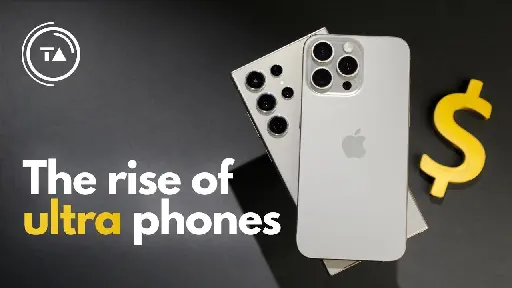I think most of the voters educated enough to have made that connection would have voted Yes anyway. Regardless, I don't think the left was anywhere near as organised and loud about the situation in the Middle East as it has been this year. The referendum went down due to homegrown issues.
I don't think peoole are against progressive ideas necessarily. In times of financial hardship their tolerance is just very low for policies and objectives that aren't targeted at addressing serious problems like the price of groceries, fuel, housing, etc. Progressive economic policy focused on these areas is popular, but left-wing politics has a bad habit of not reading the room and loudly advancing social minority causes when they should be focusing the public's attention on everything else they're doing.
Thoughts on the soul sharing changes? The 100/100 change last week was hotly debated elsewhere.
Services Australia will continue to publish quarterly data and said this will help ensure “transparency and accountability” for Aussies.
This is the first time in the department's history it has released the quarterly data.
Hope it continues!
I suppose a lot of people who might be roughly characterised as 'right-wing populists' and against status-quo neoliberalism would find the Greens unpalatable, though.
The unpalatable bit for many, particularly young men, is the social progressivism of these parties. I see it time and time again: guys who would be easy Greens voters based on their economic and environmental policies don't take them seriously because their perception is that left-wing politics is primarily focused on issues of gender and sexuality. They don't consider these issues comparatively relevant and get attacked quite viciously online for this position which feeds into this broader alienation problem they are going through due to the shift away from traditional gender roles that would have given their lives meaning. Feeling alienated by the left, these guys drift right towards groups that validate their feelings and welcome them.
I don't necessarily think this is a completely fair perception of The Greens, but the reality is that we live in an age where young people's views are heavily influenced by their social media algorithms. And if those algorithms are constantly feeding them culture war shit , particularly from the US, then it is understandable that they feel this way. Currently, I don't see an organised attempt by left to combat this problem, nor even an admission that we have agency over it. The focus still just seems to be on blaming the right for manipulating these young men.
The word "whiteness" is commonly associated with whiteness theory and whiteness studies. It's not commonly associated with whatever you were talking about.
It depends on the skill bracket you're playing in and how badly you're losing I think. At higher skill levels there is a lot of strategic play around the urn, whether that's using it as a comeback mechanic or using it to deny a comeback and bait fights. But in lower brackets I definitely agree that there is rarely any coordinated play around the urn and that steamrolls are more likely to occur due to the lack of ability and game knowledge of the losing team especially.
They've been warning everyone for over a year. They've been individually messaging affected phones for months. Nobody can really say they didn't get warning.
This is quite a misleading way of framing the communication. The telcos were clear about 3G phones no longer working many months ago, but it has not been clear at all which 4G phones would be blocked. Communication about this second problem only started recently and even then it was very unclear. Blaming consumers for not throwing out their new phones when they are receiving mixed messages over whether they will continue work is hardly a rational position.
Some wwould argue too nice! But I definitely prefer a MOBA that errs on the side of comebacks rather than snowballs.
HAHAHAHAHAHHAHAHAHAHA
YOU SEE THAT SHIT?
HUEHUEHUEHUEHUEHUEHUEHUE
Make use of the comeback mechanics. Recent updates have only made it easier to get back into a game where you're behind.
I have been fat and lazy for 3 or 4 weeks now because so much has been going on. Finally have some time and headroom to focus on running again. Going for one later today!
Is that just general soreness or something more specific?
Good luck and have fun! I'm sure it will be exciting to run with so many people.
Depending on where they live, it could be more likely their first phone is an iPhone.
A nerf to Time Wall? I guess the devs watched MikaelS's Halloween frag video...
Take your pick!
It sounds like you don't understand what whiteness theory is. It is not an argument that only white people can be racist.
What are you referring to? I searched for this and the results were just the CMG story. That wasn't even proof that the technology existed, let alone was being used.
You focused on the wrong part of my comment. The issue isn't that you have Google accounts or use YouTube, it's that you seem to have very little understanding of how much data is being collected about you through these avenues. Instead you focus on some conspiracy theory about phone microphones which is still yet to be proven despite years of technologically illiterate people telling us that "the only way they could have known that is if they were listening to me!!!!". I don't understand how you get to the point of posting in a niche privacy community whilst still being so completely clueless and misinformed.
An Australian burger chain is facing accusations of leveraging traineeship programs to keep its workers on low wages — a claim the company dismisses, saying they are "a great way to provide skills, knowledge and leadership expertise".

This is very reminiscent of the On The Run traineeship scandal that occurred in South Australia not long ago. Anyone know of other companies still using these traineeship loopholes to commit mass wage theft?
Why? Why not?
I don't care about the ranks themselves, but I am tempted to give it a go and see if it results in better matchmaking than standard play.
Just curious what the demographic here is like. The game seems to be appealing, at least for now, to both crowds. I am an FPS player whereas my friend is a ex-MOBA player and we usually struggle to find games we can enjoy equally. So far we are playing Deadlock a lot together though, and I am more hooked than I expected to be when I first realised this was primarily a MOBA.
If you started playing this game for a different reason feel free to share as well.
Silent Policy Change: Telcos to disconnect “Unsupported” Phones

State’s new curricula for years 7 to 10 released as part of the shift to explicit teaching

This sounds like a positive change, definitely a much better grounding in Australian history than I received at that age. It is pretty wild that you can live in a colonial country without ever being taught what colonisation means for indigenous peoples but that is the world we've been living in until recently.
This is not the first time we’ve seen powerful celebrity stories about cancer have the potential to influence public health. Here’s how you can make sense of the latest news.

Interesting article in relation to the media pile-on of Elle Macpherson earlier this week. According to the authors, her decision to avoid chemotherapy may have been completely normal and sensible given her circumstances. We don't actually know because no one from the ABC or any other outlet bothered to check before running their stories citing her former relationship with an anti-vaxxer, or claiming that she ignored centuries of medical advice. The authors conclude that Australians have missed a great opportunity here to discuss the current state of non-invasive breast cancer research and treatment.
YouTube Video
Click to view this content.
Labor has moved to dump proposed questions that would create the first estimate of Australia's LGBTQI+ population, with advocates saying it renders the community "invisible".

YouTube Video
Click to view this content.
Interesting video, particularly the statistics around where the majority of the market is in Western countries. If you buy a base S24 in Germany, you are actually spending less money on your phone than over 70% of the country, for example. The ultra high end market absolutely dominates despite seemingly everyone complaining about how expensive phones are these days.
The video doesn't really answer the question, though. It sort of implies that it's because we are keeping smartphones for longer and because they are becoming increasingly important parts of our lives as our screen time also increases. Manufacturers are also able to bait consumers into buying these crazy expensive phones with trade-in and bundle deals (throwing in "discounted" watches and TWS earbuds, for example).
Appointing a new managing director offers the opportunity to reset the organisation’s editorial culture by facing down the relentless attacks on its journalists from right-wing political interests.

Early expectations for generative AI are deflating – but realistic applications are beginning to emerge.

There are fears that sacred, pristine sites are being put at risk by a government-backed push to grow cotton in the outback.
This is the written article of the latest Four Corners episode.
People around the former and would-be president see a candidate knocked off his bearings, disoriented by his new contest with Kamala Harris and unsure of how to take her on.

Facebook itself is paying creators in India, Vietnam, and the Philippines for bizarre AI spam that they are learning to make from YouTube influencers and guides sold on Telegram.

NITV and SBS will provide unparalleled access to the agenda-setting dialogue and the celebration of the cultural, artistic and ceremonial traditions of the Yolŋu people, across the four-day event.

ABC NEWS is Australia’s No 1 online news brand with almost 12.6 million unique visitors in June, according to the latest Ipsos iris data released today*.
Thoughts on the redesign? I'm not sure how I feel about it yet but I didn't particularly like the old design so I don't mind something new. It looks a lot more conventional now, similar to major news outlets like The New York Times, Reuters, Associated Press, etc.
Former prime minister Kevin Rudd has demanded Jack Black 'grow up and get a decent job', following calls from a supposed 'free speech' senator. Politics in 2024 is quite something.

The joke was dumb, the online reaction to the joke was dumb, a random UAP senator's dumb comments being quoted globally was dumb and Rudd telling famous musicians and actors to "grow up and get a job" was very dumb. What a time we live in.
“While these uses of GenAI are often neither overtly malicious nor explicitly violate these tools’ content policies or terms of services, their potential for harm is significant.”

The most common vapes on the market are single-use, disposable ones. They contain valuable resources, yet aren’t designed to be recycled.

